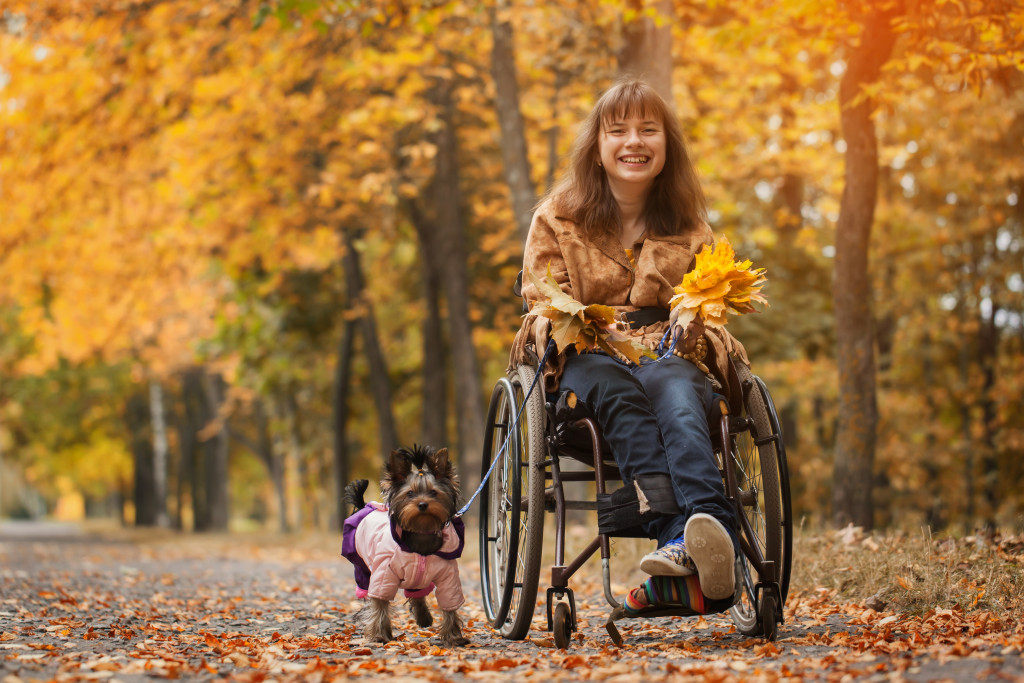- Supporting and accepting people with disabilities in the community is crucial for promoting equality, mental health, diversity, and well-being.
- It is essential to understand the unique needs of individuals with disabilities to provide appropriate support.
- Services such as assistive technologies, mobility aids, and counseling are available for those with physical, intellectual, and emotional disabilities.
- Building an inclusive community involves educating the public on disability rights and encouraging inclusive practices.
- Empowering people with disabilities means providing them opportunities to gain skills, knowledge, and experience to contribute to society.
It is not enough to simply acknowledge and recognize people with disabilities in our communities. Genuine support and acceptance should be fostered for the holistic well-being of these individuals. Regardless of ability, everyone deserves to feel valued and included in their community.
For several reasons, fostering support and acceptance in the community for people with disabilities is crucial. It promotes equality and justice. Everyone deserves the same opportunities and treatment, regardless of their abilities.
Moreover, fostering support and acceptance can improve mental health and well-being. Feeling valued, included, and supported in a community can boost confidence, self-esteem, and mental health, leading to a better quality of life.
It is essential to recognize that not all individuals with disabilities have the exact needs. Identifying their needs is vital to approach each situation and individual uniquely. It is crucial to learn and understand the diverse needs of individuals with disabilities to provide them with the necessary and appropriate support they need.
Exploring Available Support Services in the Community
One of the first steps towards fostering support and acceptance for individuals with disabilities in the community involves exploring the available support services. Several organizations provide programs and services designed to cater to the needs of individuals with disabilities.
Aboriginal Disability Care and Support Services
In Australia, there are Aboriginal disability care and support services that provide specialized support to Aboriginal and Torres Strait Islander people with disabilities. These services recognize the unique cultural needs of people with disabilities and offer culturally-sensitive support.
They promote Aboriginal and Torres Strait Islander peoples’ rights to be respected and valued and work towards creating inclusive communities.
Specific Support Services for Physical Disabilities
Physical disabilities affect people’s motor skills, mobility, and functioning. Fortunately, specialized services offer support to people with physical disabilities. These services include assistive technology, mobility aids, and home modification services.
Physical therapists, occupational therapists, and physicians provide medical support, while social workers and counselors offer emotional and practical support.
Support Services for Intellectual Disabilities
Intellectual disabilities can affect an individual’s cognitive ability and behavior. They require professional, social, and emotional support to lead fulfilling lives. Support services for people with intellectual disabilities include special education programs, vocational training, and job placement services.
Therapists and counselors provide emotional and behavioral support, while family, friends, and caregivers are critical in providing day-to-day support.
Emotional and Mental Health Support Services
People with disabilities are at a high risk of developing emotional and mental health issues due to social isolation and discrimination. Emotional and mental health support services focus on preventing and treating these issues.
These services include counseling, support groups, and therapy sessions licensed mental health professionals offer.

Building an Inclusive Community
Building an inclusive community means creating a welcoming, accommodating, and accessible environment for individuals of all abilities. This involves allocating resources and taking action to identify and eliminate discriminatory practices.
Promoting Awareness and Understanding
Promoting awareness and understanding creates a supportive culture that champions diversity and inclusion. It means educating the community about disability rights, culture, and the experience of living with a disability.
People with disabilities should be included in discussions on disability and ways to make meaningful changes. It is also vital to challenge negative stereotypes, attitudes, and misconceptions about people with disabilities.
Encouraging Inclusive Practices
Encouraging inclusive practices involves creating opportunities for the maximum participation of all individuals in community activities. This can be achieved through modifying infrastructure, programming, or communication systems.
For instance, using assistive technologies or providing sign language interpreters and captions for videos ensures access to information. Open-mindedness and flexibility can also help break down barriers and promote a sense of belonging.
Supporting Inclusion Through Community Initiatives
Community initiatives can create a lasting impact by promoting disability inclusion. These may include creating community events that are accessible and inclusive, organizing workshops or programs to empower people with disabilities, or creating partnerships with disability advocacy groups.
Community leaders and organizations should promote inclusion by setting inclusive policies and practices that prioritize the needs of all community members diversely.
Empowering Individuals With Disabilities
Empowering individuals with disabilities is essential for building an inclusive community, providing opportunities for people with disabilities to gain the skills, knowledge, and experiences needed to contribute to society.
It promotes self-advocacy and self-determination, creates active participation and engagement opportunities, and encourages independence and autonomy.
Promoting Self-Advocacy and Self-Determination
People with disabilities need to proactively advocate for themselves, creating platforms for people with disabilities to assert their rights and make informed life decisions. For instance, organizations should provide training on self-advocacy skills such as decision-making, communication, and setting goals.
Creating Opportunities for Active Participation and Engagement
Creating opportunities for active participation and engagement ensures that people with disabilities are not passive recipients of support but active contributors to society. It can be done through creating opportunities for people to get involved in volunteering, social activities, and community events.
Through this, individuals develop a sense of belonging and ownership, which leads to a more inclusive community.
Encouraging Independence and Autonomy
Encouraging independence and autonomy means providing individuals with the tools and resources to lead a full and self-determined life by providing accessible transportation, employment opportunities, and technologies for greater independence.
By doing so, people with disabilities can meaningfully contribute to society and lead fulfilling lives.

Creating an inclusive community for people with disabilities requires the collective effort of individuals, communities, and societies. By being aware of the available support services in the community, supporting disability care and support, and fostering inclusion in everyday life, we can positively impact the lives of people with disabilities.

